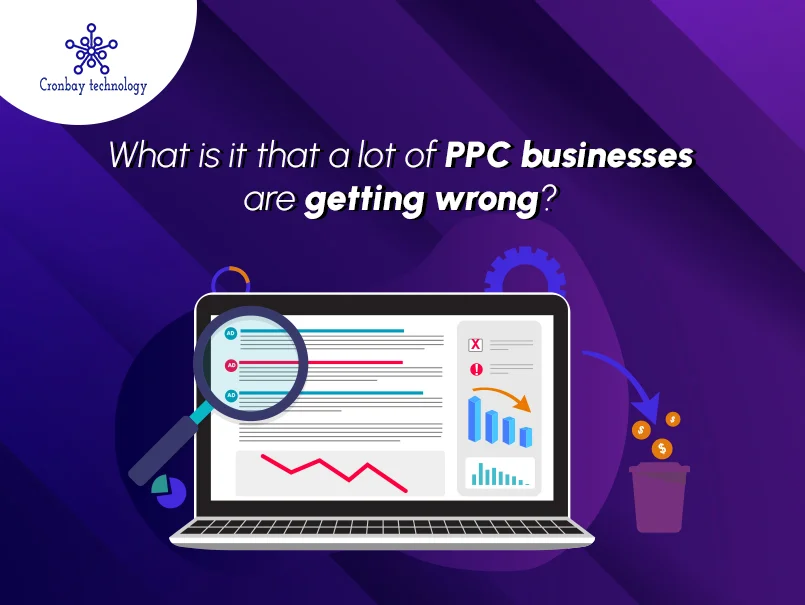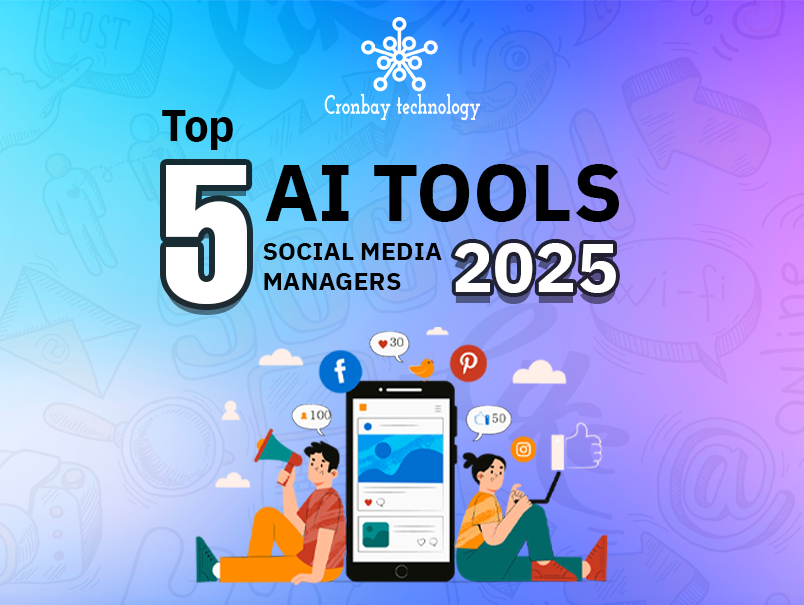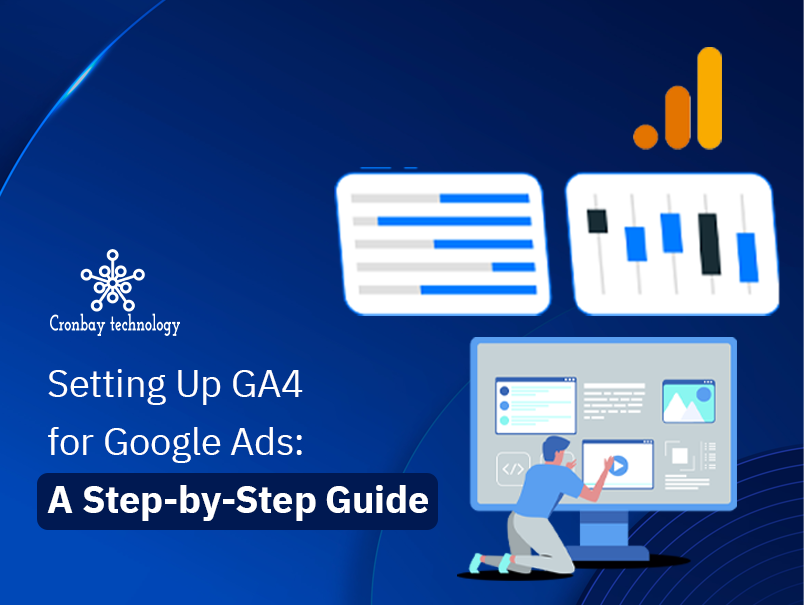Pay-per-click (PPC) advertising is one of the most successful ways to build your company and generate revenue in today's digital marketing landscape. 65 percent of small and medium-sized enterprises are using pay-per-click (PPC) advertising. PPC success stories are rare, but for everyone, there's a firm that has spent tens of thousands of dollars on paid advertising agencies and seen no returns. As for the victors and losers, what distinguishes the two? What factors contribute to the failure of some pay-per-click (PPC) campaigns?
PPC campaign administration is a challenge for many ad managers and businesses. AdWords and social media advertising accounts are either mismanaged or started off on the wrong foot. Most firms make a few basic errors that may be easily avoided and remedied.
Common PPC Advertising Problems & How to Fix Them
A lot of work goes into creating a successful PPC ad campaign, from keyword research to ad group architecture to creating landing pages that match user intent. And there's a lot of money at stake.
This guide to some of the most frequent PPC difficulties will assist if you don't have the ability or experience to solve them quickly.
-
Poor First impressions
As one of the most typical PPC advertising issues, the lack of impression share might indicate that an ad isn't getting the attention it deserves.
You'll need at least one ad group with at least one ad targeting at least one keyword in order to launch a PPC campaign. If you bid high enough, your ad may show up in any number of searches based on the keyword match type you choose.Solution
The most apparent approach to gauge the performance of your PPC advertising is by the number of conversions. In order to accurately assess the effectiveness of your campaigns, you need to make sure that your conversions are set up correctly.
Importing conversions from Google Analytics is the first step to achieving this goalYou may set up conversions in Google Ads by importing data from Google Analytics. Google will import the conversions for you with a few mouse clicks. Verify the imported conversions to make sure they're all the ones you want to focus on optimising with your Google Ads campaigns once they've been imported.
Click the objective name in Google Ads, click edit, and adjust the "Include in Conversions" option if you don't want to optimise for it. For automatic bidding methods, Google's machine learning will optimise for the conversions you have set up in the account. This is a very crucial stage.
-
The keyword intent does not match.
Unless your target keyword's search intent matches the product or service you are selling, you are likely to spend your advertising money on unrelated hits. As an example, a firm that provides crawl space waterproofing services wouldn't want to target the word "crawl space" since it's too general and doesn't capture the purpose of a customer searching for waterproofing. A better term might be "crawl space waterproofing," which clearly conveys a customer's goal that lines up with the services being provided.
Solution
Keywords that fall into this group tend to be the most expensive to rank for. They may see a few conversions, but the cost-per-conversion is substantially greater. The first step is to go through your keywords, ranking them based on their cost.
You should stop using keywords that don't fit the purpose of your product or service in your content. Analyse your search phrase data next. If you don't want your advertising to appear for certain phrases in the future, use negative keywords. Also, keep an eye out for new keywords you may use in lieu of the ones you just stopped using.
-
Lack of ad scheduling
Does your campaign have an ad schedule? An ad schedule determines when your advertising will be shown. Your adverts will be shown around the clock by default. Advertising when no one is accessible to answer your phones may not be the greatest use of your money, depending on your product or service.
Solution
If you're looking for your ad schedule, click "More" and then "Ad Schedule." The data in the table should be split down by day and hour if you've set up an ad schedule. If this is the case, selecting the pencil symbol will enable you to set up an ad schedule.
How do you optimise an ad campaign that is underperforming?
Improve the performance of your underperforming PPC campaigns by following these suggestions.
-
Aim for a Higher Quality Rating
One of the most important aspects of AdWords for an advertiser is the Quality Score. If your keywords, ad copy, and landing pages are all extremely relevant, your visitors will have a better time searching.
Google will reward you with a higher Quality Score if you provide a good and highly relevant user experience to your visitors. When it comes to PPC, a high-quality score means a reduced cost per click. Because of this, it is imperative that you work on boosting your PPC campaigns' Quality Scores.
-
Negative Keywords should not be overlooked
When it comes to PPC campaigns, negative keywords play a critical role in preventing money leaks. AdWords PPC Marketing experts see them as a godsend. As soon as a PPC campaign fails or underperforms, the negative keywords save the day.
These are the keywords that prevent your ad campaigns from being activated by irrelevant searches. Your adverts are ranked lower if they are triggered by unrelated search queries. As a consequence, the CTR is much lower.
Additionally, if your advertisements are receiving a large number of impressions but a low number of clicks, you should use negative keywords.
Your advertising will be more likely to be seen by the right people when they are not activated by any form of inappropriate search queries, thanks to negative keywords.
-
Check to see if there is a correlation between the Ads and the search terms.
While some Ad Groups are functioning better than others, it's important to keep track of which Ad Groups you're spending money on.
If this is the case, focusing on the Ad Groups that aren't doing well is a good idea. To improve the effectiveness of failing campaigns, the first step is to examine the relevance of your advertising to the search keywords.
-
Analyse Your Competitors
Identifying your rivals and analysing their plans, strengths, and shortcomings is the goal of competitor analysis.
AdWords supplies you with a wealth of information on your rivals, which is a crucial part of any PPC campaign. As a result of this knowledge, you will be able to improve your PPC campaigns and raise your conversions. If you are looking for a professional to help you, you may click here and book the appointment right away.
Final Thoughts
As there are so many variables in PPC, it may be tough to keep your account running as effectively as possible. PPC is ever-changing. With a PPC partner, you don't have to worry about managing the campaigns daily.
Frequently Asked Questions
Q1. Why is advertising losing its percentage of the ad impressions?
Ans. To calculate your "impression share," divide the number of impressions you've gotten by the number of impressions you were expected to acquire throughout the promotional period. A low proportion of impressions on the Search Network indicates that your keywords match client queries, but your advertisements aren't showing up because of other difficulties.
Q2. How can you get the most useful data for your PPC analysis?
Ans.
- Take a look at how your accounts are set up.
- Consider who you're trying to reach.
- The time of day that you submit your adverts is important.
- Observe what your rivals are doing.
Q3. How to test PPC advertisements?
Ans. A/B testing is the most straightforward method for evaluating the effectiveness of your pay-per-click advertising. To do A/B testing, you simply run two or more advertisements inside the same ad group, with one variable altered each time, to determine which one works best. Regardless of whether you're running PPC advertisements on social media or search engines, you may use this technique.





